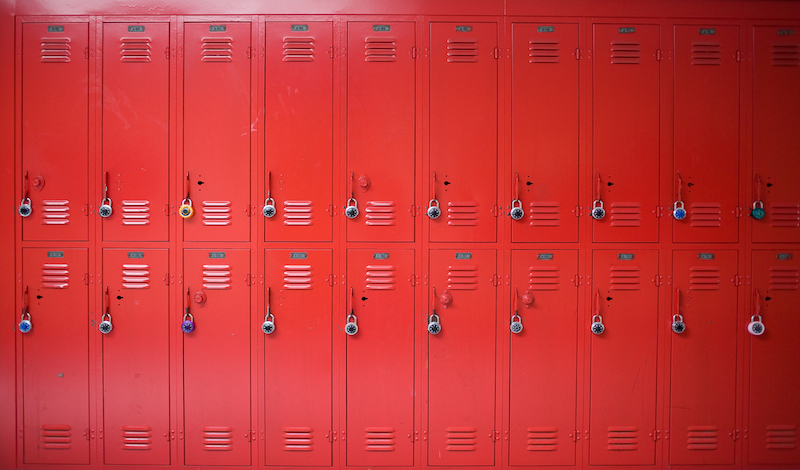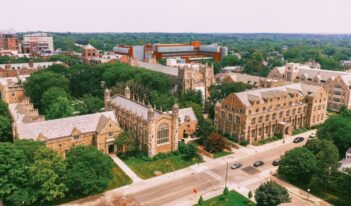
Courts face religious freedom challenges from instructors over transgender students’ preferred names.
Recent lawsuits have centered around classroom instructors who refused to refer to their transgender students by their preferred names or pronouns during class. The instructors claim that their sincerely held religious beliefs, among other reasons, justify their refusal.
Research suggests, however, that school environments where individuals do not accept transgender, gender nonconforming, or gender fluid students’ gender identities can impact the students’ overall mental well-being. A hostile school climate can also lead to adverse educational outcomes. The results of these cases have important implications for public schools.
Meriwether v. Hartop is one such case currently working its way through the court system.
The professor in Meriweather stated his belief that “God created human beings as either male or female” and that sex “cannot be changed, regardless of an individual’s feelings or desires.”
The professor argued that his sincerely held religious beliefs conflicted with a university policy that required him to address transgender students by their preferred names and pronouns in class.
As a compromise, he proposed to address only his transgender student by her last name. University officials suggested that he address the student by her preferred pronouns or stop using all gender-based pronouns when referencing any student. After a letter of reprimand was placed in his file for noncompliance, the professor filed a lawsuit and asserted a free exercise claim.
Laws or policies that burden religious exercise are presumptively unconstitutional unless they are both neutral and generally applicable. According to the U.S. Supreme Court, there is no free exercise violation when the burden on religious exercise is the incidental effect of a neutral, generally applicable policy. The Supreme Court has distinguished, however, neutral and generally applicable law from laws that single out a specific religion for unfavorable treatment.
The professor argued that the university’s policy was not neutral because university officials exhibited hostility toward his specific religious beliefs. He cited an instance in which one university administrator apparently laughed when the union representative presented arguments on his behalf. He also alleged that irregularities in university administrators’ investigation processes permitted a plausible inference of “ non-neutrality.”
Initially, a federal district court dismissed the professor’s free exercise claim, finding that the university did not violate his right to exercise his religion freely.
In March of this year, however, a federal circuit court reviewing the case determined that there was evidence that administrators reacted to the professor’s arguments in a non-neutral way. The court posited that the university’s investigation did not exhibit neutrality because its basis for disciplining the professor changed from being a response to the professor’s creation of a “hostile environment” to later being a response to his “disparate treatment.” The court reasoned that these repeated changes in position permitted a plausible inference that university officials were not applying a preexisting policy in a neutral way.
The court allowed the claim to proceed but noted that the professor’s success in court will ultimately depend on the outcome of discovery and the evidence presented at trial.
Another federal district court decided a similar case in early 2020. The case, Kluge v. Brownsburg Community School Corp., involved a K-12 public school teacher who refused to call his transgender students by their preferred names or pronouns. After the teacher, Kluge, was forced to resign, he alleged that school officials offended his sincerely held religious beliefs when he was asked to refer to students who were experiencing gender dysphoria by their preferred names or pronouns. The school district pointed out that, under past precedent, there is no free exercise violation when the burden on religious exercise is the incidental effect of a neutral, generally applicable policy. The court agreed, finding no free exercise violation.
According to the Kluge court, the school district’s policy was neutral and generally applicable to every teacher in the district, regardless of religious belief. And the teacher did not produce any evidence to suggest that this policy was developed to target any specific religious belief. For these reasons, the court denied the teacher’s free exercise violation claim.
Kluge also challenged his forced resignation on another ground. He asserted a claim under Title VII of the Civil Rights Act of 1964—which prohibits discrimination based on race, color, national origin, sex, and religion. Kluge alleged that he was unlawfully fired for raising religious objections to the school’s policy. The court has allowed this claim to proceed and the case is ongoing.
Similar legal challenges are ongoing that involve K-12 public school districts in Virginia and Wisconsin, and another one has arisen within the private sector in Maryland. The outcomes of these cases will provide more guidance in those specific states and school districts.
In Arizona, further litigation may be on the horizon. State Representative John Fillmore (R-16) has proposed a bill that would forbid Arizona public schools from requiring educators to use students’ preferred pronouns.
As these cases making their way through the court system across the country demonstrate, some universities and school districts have prioritized policies that focus on their students’ well-being. But as the court in Kluge suggested, certain contexts within a school setting call for appropriate limitations on laws related to employees’ religious beliefs. These limitations protect instructors from interference in the practice of their religion outside of the scope of their school duties. But at the same time, school district policies can and should ensure that each student’s identity is recognized within the classroom.
This essay is part of a 9-part series, entitled LGBTQ+ Rights and Regulation.




